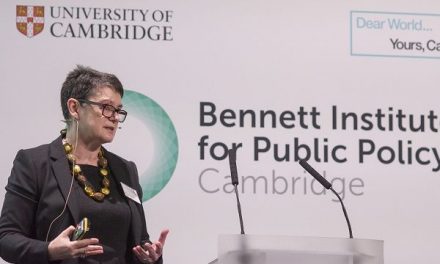
‘I am proud of EIF leadership’ – Shifeta

By Pohamba Shifeta
Minister of Environment, Forestry, and Tourism.
Allow me to begin by stating that the Ministry of Environment, Forestry, and Tourism (MEFT) is an important contributor to economic growth, poverty reduction, and employment creation.
Our mandate is very broad, and the ministry has a major role to play in ensuring the sustainable utilisation of all of our natural resources and the fair and equitable sharing of benefits that arise as a result.
In terms ofArticle95(L) of the Namibian Constitution, we are duty bound to protect our environment and all that encompasses it, but also to ensure that our local communities who are the custodians of this unique and rich endowment of natural resources continue to benefit from them.
Hence the establishment of the Environmental Investment Fund (EIF) of Namibia. The EIF was founded by the creation of the EIF Act 13 of 2001 and mandated raising funding for investments into projects and programmes that promote sustainable development.
I am proud to announce that 10 years after its establishment, the EIF is today one of the fastest-growing green and climate financing institutions in Africa.
Also, I am confident that, through the EIF, we are on the right track towards improving the living standards of our people as a result of deliberate government interventions that put livelihoods at the centre of our development agenda and the overall attainment of the global commitment through the UN Sustainable Development Goals (SDGs).
The EIF’s accreditation by the Global Climate Fund (GCF) in 2016, as a direct access entity for country-level programme delivery, played a significant role in bringing us to this point in our achievements.
To date, the fund as a consequence has raised more than N$640 million for climate action grants and readiness support from the GCF for the country for numerous projects.
Allow me to highlight some of these interventions. Sunref is one of these projects the EIF has successfully implemented and for which it has attracted more funding from the Green Climate Fund (GCF). Sunref stands for the Sustainable Utilisation of Natural Resources and Energy Financing.
In most cases, these activities happen in rural communities, and our directives to the EIF, which is a state organ, have been for the entity to target rural communities for developmental initiatives.
Today we have more funding taking place in those communities. They have conservancies where we have erected solar-power technologies, as well as financed most of the sustainable transition programmes for these conservancies and community forests.
The Nilaleg project is one of the most successful, being carried out by the EIF and the ministry. We have managed to bring those rural communities – especially women – who are in crop farming as well as general farming, into the mainstream.
We train them, as this project has a capacity training element, but we also provide financing for activities relevant to the current situations, but in line with the climate-change situations in these regions.
We have managed to train the communities in the sustainable utilisation of natural resources, with an emphasis on ensuring their survival during droughts and minimal rains.
Another project, the Sustainable Development Awards, has been established to inspire communities that are into projects related to climate change mitigation.
We want to promote those kinds of projects to mitigate the impact of climate change, especially in rural areas. Since their inception, the awards have motivated project proponents to lean towards climate-resilient programmes.
We are delighted that last year the EIF attained re-accreditation from the GCF. The re-accreditation for a further five-year period came after the initial five-year period lapsed in June 2021.
This re-accreditation was preceded by a rigorous institutional review and assessment of the EIF by the GCF, and it demonstrates the commitment and cooperation between the government of the republic of Namibia, but more specifically, the MEFT, Ministry of Finance, and the EIF management.










































